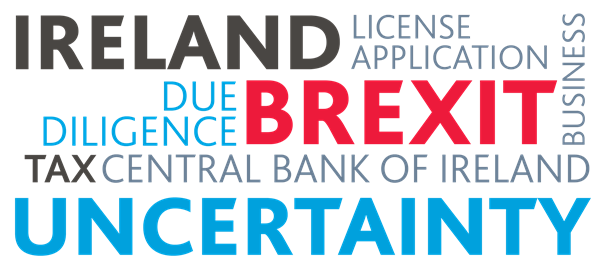Headed to Ireland? What small and mid-sized financial services companies need to consider

As financial services companies look for a new home in Ireland in the midst of a potential Brexit, they must consider a myriad of issues as they go through the formal application process with the Central Bank and prepare to make the move.
These include licensing, their operations setup and matters of restructuring, to name just a few. And, of course, each type of financial services company faces a different set of questions. In my role as Director of Risk and Advisory Services at BDO in Dublin, we are seeing more and more questions about this from prospective clients.
With each day that passes, organisations are getting more worried because they’re under pressure to make things happen and simultaneously faced with uncertainty about when the license will be granted and what the move might entail.
That gets added to other sources of uncertainty, including not knowing how the company will structure the operations from a tax perspective, and how it will do so from a people and location point of view as well.
In my opinion, getting a license to do business in Ireland is not just about filling out a form correctly that you can find on the Central Bank’s website. The actual task is to provide officials with enough comfort that your organisation’s processes and risk management structures are in place.
Large companies typically have an army of people to help them get their applications accepted. But for smaller companies, such as funds, it’s not uncommon for the Central Bank to ask for more information before granting a license, which extends the period of uncertainty.
In one case I’m familiar with, the regulator wanted to know more about how the company would monitor their own compliance to anti-money laundering (AML) laws and know your customer (KYC) requirements.
In another, the Central Bank wanted more detail on who would fulfil certain control functions and the qualifications of those individuals.
For me, this is all about how an organisation manages its compliance and governance matters, as well as its risks.
One risk of high importance to regulators is IT risk.
Questions will likely include: How can you ensure business continuity with your IT systems? Are you relying on a third party for your IT systems, and, if so, how are you managing that third party? Have you considered cybersecurity?
Given all the types of questions that financial services companies have to answer before getting their licenses approved, my recommendations are these:
- Make sure you’ve done your own due diligence and assessments to know that a move to Ireland is right for the business;
- Assuming it is, proceed with caution with your application and expect it to take a significant amount of time;
- Bring in the appropriate people from your business to the application process, including those from IT, operations, compliance and finance;
- Identify a firm that will provide internal audit and other third-party assurances;
- Seek an independent assessment and advice about the submission to avoid surprises;
- Finally, be ready and flexible to answer the regulator’s follow-up questions.
To date, it is reported that the Irish Central Bank has received over 100 applications from companies looking to either set up or extend operations in Ireland as a result of Brexit, with around half of those firms being involved in asset management. I believe this is only the tip of the iceberg and Ireland can expect to see multiples of this number as Brexit looms closer.